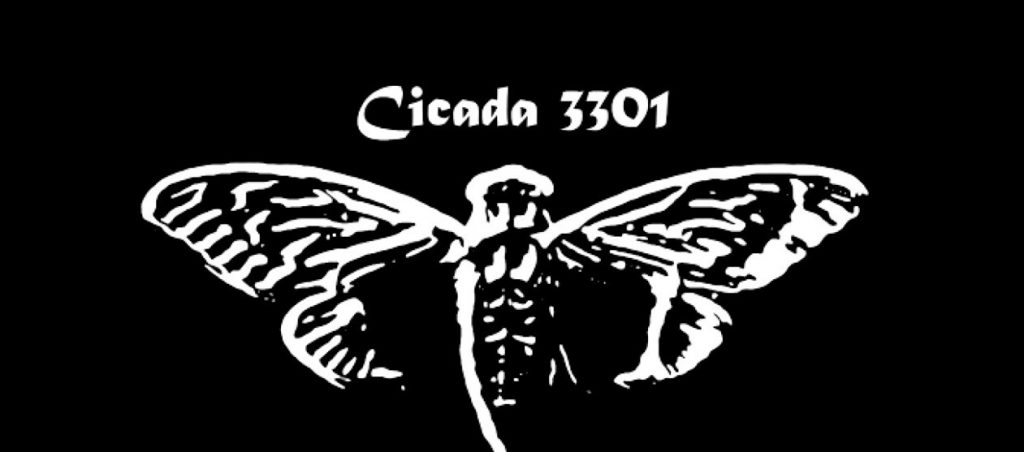

At the heart of the enchantment is the counterfeit promise of ultimate meaning through self-divination."

Conspiracy theorist Tim Dailey, a former senior research fellow with the conservative Christian Family Research Council, analyzed Cicada 3301 puzzles and stated, "The enigmatic Cicada 3301 appears to be drawing participants inexorably into the dark web of the occult à la Blavatsky and Crowley. Claims of being a cult Īs the group gained notoriety and public attention, many asserted that the puzzles were an introduction to occult principles, and possibly even recruitment for a cult. The hacker group later confirmed that they were not affiliated with Cicada 3301. Cicada 3301 later issued a PGP-signed statement stating they "are not associated with this group in any way" and also stated that Cicada 3301 did not "condone their use of our name, number, or symbolism". In July 2015, a group calling themselves "3301" hacked into Planned Parenthood's database however, the group appeared to have no association to Cicada 3301.

Cicada 3301 responded to this claim by issuing a PGP-signed statement denying any involvement in illegal activity. Allegations against the group Allegations of illegal activity Īuthorities from the Los Andes Province of Chile claimed that Cicada 3301 is a "hacker group" and engaged in illegal activities. Each clue was signed by the same OpenPGP private key to confirm authenticity. In addition to using many varying techniques to encrypt, encode, or hide data, these clues also referenced a wide variety of books, poetry, artwork and music. One book, titled Liber Primus, literally "first book", contains many pages, only some of which have been decrypted. The Cicada 3301 clues spanned many different forms of communication media, including the internet, telephone, original music, bootable Linux CDs, digital images, physical paper signs, and pages of unpublished cryptic books written in runes. Locations of the physical paper signs from the 2012 puzzle He did not finish his work on a method of general decryption and the website was removed. Those who answered satisfactorily at this stage were invited to a private forum, where they were instructed to devise and complete a project intended to further the ideals of the group. According to him, those who solved the puzzles were asked questions about their support of information freedom, online privacy and freedom, and rejection of censorship. The first puzzle, of 2012, was solved by Marcus Wanner. According to statements of several people who won the 2012 puzzle, 3301 typically uses non-puzzle-based recruiting methods, but created the Cicada puzzles because they were looking for potential members with cryptography and computer security skills. Others claimed that Cicada 3301 is a cult or religion. Some claimed that Cicada 3301 is a secret society with the goal of improving cryptography, privacy and anonymity. The stated purpose of the puzzles each year was to recruit "highly intelligent individuals", although the ultimate purpose remains unknown. Dark Web: Cicada 3301, a film inspired by the organization, was released in 2021. Some of the final contestants believe that Cicada 3301 is a remnant of the late 80s and 90s Cypherpunk movement. Others have stated Cicada 3301 is an alternate reality game, although no company or individual has attempted to monetize it. Many have speculated that the puzzles are a recruitment tool for the NSA, CIA, MI6, a " Masonic conspiracy", or a cyber mercenary group. It has been called "the most elaborate and mysterious puzzle of the internet age", and is listed as one of the "top 5 eeriest, unsolved mysteries of the internet" by The Washington Post, and much speculation exists as to its function. The puzzles focused heavily on data security, cryptography, steganography, and internet anonymity.

Cicada 3301 posted their last verified OpenPGP-signed message in April 2017, denying the validity of any unsigned puzzle. A new clue was posted on Twitter on January 5, 2016.
#CICADA 3301 OUTGUESS SERIES#
The stated intent was to recruit "intelligent individuals" by presenting a series of puzzles to be solved no new puzzles were published on January 4, 2015. A second round began one year later on January 4, 2013, and then a third round following the confirmation of a fresh clue posted on Twitter on January 4, 2014. The first Internet puzzle started on January 4, 2012, on 4chan and ran for nearly a month. Cicada 3301 is a nickname given to the entity that posted three sets of puzzles online between 20.


 0 kommentar(er)
0 kommentar(er)
